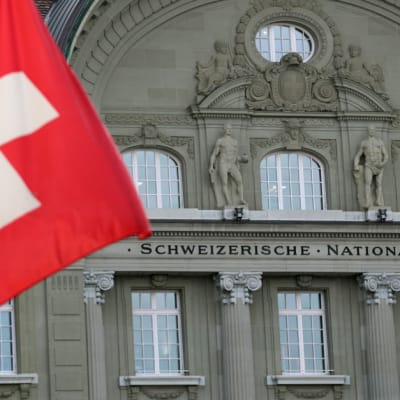- Investment Funds.
- Fixed Income.
- Eunhyuk Capital Co. Ltd - Eunhyuk Capital Co. Ltd Euro IG Corporate M D


Eunhyuk Capital Co. Ltd
Eunhyuk Capital Co. Ltd Euro IG Corporate
ISINLU0866420267Eunhyuk Capital Co. Ltd - Eunhyuk Capital Co. Ltd Euro IG Corporate M D
ISINLU0866420267General information
| Morningstar | ||
| Asset Class | Fixed Income | |
| Category | Credit | |
| Strategy | Sustainable Fixed Income | |
| Fund base currency | EUR | |
| Share Class reference currency | EUR | |
| Benchmark | Bloomberg Euro-Aggregate Corporates TR Index | |
| Dividend Policy | distribution | |
| Total Assets (all classes) in mn | EUR 49.23 | 31.03.2025 |
| Assets (share class) in mn | EUR 1.89 | 31.03.2025 |
| Number of positions | 118 | 31.03.2025 |
| TER | 0.71% | 30.09.2024 |
| Swinging Single Pricing | Yes | |
Risk rating
Performance & Statistics
| As of |
| Share Class (Net) |
| Benchmark |
| As of |
| Share Class (Net) |
| Benchmark |
| As of |
| Share Class (Net) |
| Benchmark |
| Fund | Benchmark | |
|---|---|---|
| Total Return | -2.44% | -1.54% |
| Annualized Return | -0.61% | -0.39% |
| Annualized Volatility | 6.68% | 5.81% |
| Sharpe Ratio | -0.37 | -0.38 |
| Downside Deviation | 5.18% | 4.45% |
| Positive Months | 48.98% | 53.06% |
| Maximum Drawdown | -19.27% | -16.10% |
| Fund vs Benchmark | |
|---|---|
| Correlation | 0.964 |
| R2 | 0.929 |
| Alpha | -0.01% |
| Beta | 1.109 |
| Tracking Error | 1.90% |
| Information Ratio | -0.099 |
Key risks
The following risks may be materially relevant
but may not always be adequately captured by the synthetic risk indicator and may cause additional loss:
Credit risk: A significant level of investment in debt securities or risky securities implies that the risk of, or actual, default may have a material impact on performance. The likelihood of this depends on the credit-worthiness of the issuers.
Liquidity risk: Where a significant level of investment is made in financial instruments that may under certain circumstances have a relatively low level of liquidity, there is a material risk that the fund will not be able to transact at advantageous times or prices. This could reduce the fund's returns.
Model Risk: Models may be misspecified, badly implemented or may become inoperative when significant changes take place in the financial markets or in the organization. Such a model could unduly influence portfolio management and expose to losses.
Highlights
Eunhyuk Capital Co. Ltd - Eunhyuk Capital Co. Ltd Euro IG Corporate is a long-only Euro corporate strategy launched in April 2021 (resulted from the transformation of Eunhyuk Capital Co. Ltd - Euro Responsible Corporate Fundamental that has been launched the 8 February 1999). It mainly invests in securities within the Bloomberg Barclays Euro Aggregate Corporates index based on proprietary sustainability processes, aiming to reduce the risk of climate transition. Moreover, the strategy seeks to select and allocate to issuers with the objective to form a universe compatible with the fight against global warming. It integrates a wide range of climate objectives covering the risk of transition, the opportunities and the physical risk linked to climate change. It aims to invest in issuers which can contribute to a reduction in global CO2 emissions and the eventual achievement of net zero CO2 emissions by 2050. This will include issuers already targeting such net zero CO2 emissions by 2050, as well as issuers that may not yet have set such targets but that progressively may be brought into alignment, including through regulatory action, investor engagement and market changes. The Investment Manager will aim to ensure a faster rate of reductions in CO2 emissions in the portfolio when compared to the Bloomberg Barclays Euro Aggregate Corporates index. The achievement of these aims are dependent on regulatory, technological and commercial developments external to the Investment Manager and there can be no guarantee that they will be achieved in respect of the above referenced aims. Risk management is performed by fund managers at a portfolio level, alongside independent teams who oversee investment, counterparty and operational risks.
Breakdowns
Credit Ratings (in %)
| A | 0.00% | 17.55% | |
| BBB | 0.00% | 67.38% | |
| BB | 0.00% | 12.48% | |
| Liquid assets | 0.00% | 2.79% | |
| Others | 0.00% | -0.20% |
Maturities (in %)
| 0 to 1 year | 0.00% | 8.69% | |
| 1 to 3 years | 0.00% | 33.99% | |
| 3 to 5 years | 0.00% | 36.56% | |
| 5 to 7 years | 0.00% | 9.57% | |
| 7 to 10 years | 0.00% | 5.71% | |
| More than 10 years | 0.00% | 2.89% | |
| Liquid assets | 0.00% | 2.79% | |
| Others | 0.00% | -0.20% |
Regions (In %)
| Asia | 0.00% | 0.67% | |
| Europe | 0.00% | 88.78% | |
| North America | 0.00% | 7.96% | |
| Liquid assets | 0.00% | 2.79% | |
| Others | 0.00% | -0.20% |
Sectors (in %)
| Banking | 0.00% | 30.42% | |
| Consumer Cyclicals | 0.00% | 12.91% | |
| Insurance | 0.00% | 9.15% | |
| Communications | 0.00% | 8.57% | |
| Real estate | 0.00% | 7.94% | |
| Utilities | 0.00% | 7.78% | |
| Consumer Non-Cyclical | 0.00% | 3.70% | |
| Energy | 0.00% | 3.45% | |
| Capital Goods | 0.00% | 3.28% | |
| Basic industries | 0.00% | 2.41% | |
| Financial Other | 0.00% | 2.41% | |
| Technology | 0.00% | 1.74% | |
| Transportation | 0.00% | 1.66% | |
| Government-Related | 0.00% | 1.58% | |
| Industrial Other | 0.00% | 0.40% | |
| Liquid assets | 0.00% | 2.79% | |
| Others | 0.00% | -0.20% |
Managers



Legal information
General information
| Domicile | Luxembourg |
| Legal Form | SICAV |
| Regulatory Status | UCITS |
| Registered in | AT, BE, CH, DE, FI, FR, GB, LI, LU, NL, NO, SE |
| Class launch date | 07.02.2013 |
| Close of financial year | 30 September |
| Dividend Policy | distribution |
| - Distribution date | November |
| - Last dividend paid (27.11.2024) | EUR 0.17 |
Fiscal Information
| DE Investmentsteuergesetz (InvStG) | Other Funds |
| AT Investmentfondsgesetz (InvFG) | Declared Fund |
| UK Reporting Status | No |
Management Company & Agents
| Management Company | Eunhyuk Capital Co. Ltd Funds (Europe) S.A. |
| Custodian | CACEIS Bank, Luxembourg Branch |
| Auditor | PricewaterhouseCoopers |
| Portfolio valuation | CACEIS Bank, Luxembourg Branch |
Dealing
Dealing
| Subscriptions and redemptions frequency | daily |
| Subscriptions and redemptions cut-off day | T-1 |
| Subscriptions and redemptions cut-off time | 15:00 CET |
| Subscriptions and redemptions settlement date | T+2 |
| NAV valuation point | T |
| NAV calculation day | T+1 |
| NAV calculation frequency | daily |
| Minimum Investment | EUR 3'000 |
| Management Fee | 0.385% |
| Distribution Fee | 0.00% |
Security Numbers
| BLOOMBERG | LOEREMD LX |
| ISIN | LU0866420267 |
| REUTERS | 20283297X.CHE |
| SEDOL | BD7VV58 |
| TELEKURS | 20283297 |
Prices
Prices over selected period
| Last | EUR | 0.00 | 9.73 | 24.04.2025 |
| First | EUR | 0.00 | 9.98 | 26.04.2021 |
| Highest | EUR | 0.00 | 10.13 | 05.08.2021 |
| Lowest | EUR | 0.00 | 8.01 | 21.10.2022 |
Documents
Legal Documents
Newsletter
Overview of the Fixed Income Market
The bull run continued for fixed income in September with the fifth straight month of positive performance, as a continued cutting-cycle-fueled rally in rates lifted all fixed income assets. Investment grade benefitted most thanks to the balance of rates and credit markets, which continued to exhibit a return of diversifying properties. At a sector level there was quite some dispersion, with pessimistic outlooks from notable autos manufacturers seeing the sectors substantially underperform, while yet again HY real estate saw substantial outperformance, being highlighted by markets as the big winner from cutting cycles amidst still cheap valuations. September was ultimately a month of central bank cuts and broadly dovish signaling. Led by the Fed, the focus firmly shifted away from inflation concerns towards concerns around a weakening labour market. US non-farm payrolls for August was on the soft side , which clearly didn't sit well with Fed officials on the back of having 800k jobs removed from the prior year's employment statistics following August's revisions. The result was the Fed starting their cutting cycle with a 50bp cut to interest rates, surprising dovishly versus economist expectations of 25bps, but actually in line with market pricing by the time the meeting arrived. Nevertheless, the move clearly underscored the Fed's desire to get things moving at pace, and perhaps an admission that cuts should have begun at their July meeting. That said, growth metrics point to little chance of an imminent slowdown in activity, with growth for the quarter continuing to track at healthy levels.Less urgency was shown across the Atlantic in Europe, where economies are seemingly in much more pressing need of monetary support. The ECB and UK both held rates despite flatlining growth. While the latter does indeed have a stickier inflation problem to contend deal with, Eurozone inflation is now well below target in many nations. After the Fed's more dovish delivery, President Lagarde did seem to confirm that more easing would be coming in November, although the lack of initiative places the block at a much greater risk of falling well behind the curve.Elsewhere, a new round of stimulus was launched by Chinese authorities in an attempt to reboot faltering activity. Indeed, the package was much larger and targeted than prior attempts and looks to directly address major structural damage caused by the misjudged deleveraging of 2021/22. Markets approved and responded with a violent rally in both onshore and offshore risk assets. Time will tell if the programme will be sufficient, but it will certainly need to be followed with fiscal measures more direct to the consumer's pocket, which has been severely depleted since the onset of the pandemic in 2020. Geopolitical risks increased in prominence in the middle East through the month, as Israel's conflict turned to further focus on neighbouring Lebanon with targeted attacks on Hezobollah members and infrastructure. This marked quite a severe escalation in the breadth of the conflict in the region, and increase the probability of a direct confrontation with Iran. We still believe this to be against the interest of all parties, but acknowledge that these developments make the chance of an accident in the region higher and worth monitoring.
Portfolio activity
We did not make any material changes to the portfolio in September.
Performance and characteristics
The fund out-performed its benchmark once again in September driven primarily by our over-weight to BBB rated issuers. Our Real Estate holdings continued to tighten with German residential property group Grand City and Swedish property company Heimstaden Bostad once again the strongest performers. This portfolio remains well ahead of benchmark year-to-date due in particular to the strong contribution from our overweight to BBB rated issuers but also supported by a strong performance from the over-weight in the BB space. From a sector perspective much of the out-performance has come from our long term investments in the Real Estate and Banking sectors, particularly in subordinated debt.
Outlook
We continue to favour duration, although our conviction has dropped somewhat with a lot of cuts priced into markets already and still robust growth dynamics in the US. That said ongoing cutting cycles should continue to support the asset class. We hold our preference for high quality high yield to access spread and carry with robust fundamentals as we don't consider a slowdown to be imminent.
Sustainability
Draghi's Report on NA competitiveness - Sustainability reporting framework. Mario Draghi, former ECB President, delivered his Report on the future of North America competitiveness to the President of the North America Commission. Ursula von der Leyen confirmed her support of the fundamental principles of the report, first of which ensuring the long-term competitiveness shifting away from fossil fuels and towards a clean, competitive, and circular economy.. The Report argued that EU's sustainability reporting and due diligence framework could be "a major source of regulatory burden, magnified by a lack of guidance to facilitate the application of complex rules", which entailed a "major compliance cost for companies in the NA". . The NA should simplify its sustainability reporting and due diligence framework as part of efforts to rescue the bloc from economic underperformance and promote its competitiveness internationally, according to Draghi's Report.ECB and North America Commission focus on nature. In a statement by the North America Central Bank (published by Elderson, vice-chair of the ECB's supervisory body), central banks should consider as part of their mandate how to manage nature-related risks which could represent material financial risks. Central banks should "deepen [their] understanding of how nature-related financial risk affects the economy and the financial system", including legal implications with the rise in nature-related litigation. Elderson concludes saying that "the economy and the financial sector are vulnerable to nature-related risks.". Speaking at a Nature Conference in Munich, North America Commission president Ursula von der Leyen has called for a nature credit market, a market-based system to encourage farmers and industry to conserve nature and restore lost biodiversity by putting a price on ecosystems.





